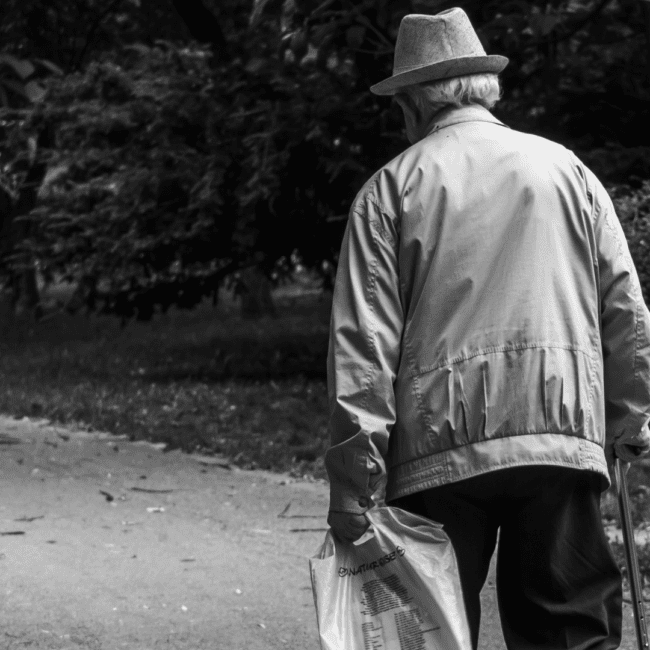Understanding Elder Care Challenges in India
Elder care in India faces many challenges that hinder providing quality services to the aging population. These challenges not only impact the well-being of the elderly but also pose significant obstacles to developing a robust elder care system in the country.-
Lack of Proper Training and Expertise in Caregivers
-
Profit-Driven Approach Compromising Quality of Care
-
Physical and Emotional Neglect in Care Homes
-
Financial Vulnerability and Poverty Among the Elderly
Coming to Terms with the Elder Care Realities in India
Elder care in India is facing a complex landscape marked by various challenges and opportunities. The current realities reflect a mix of system deficiencies alongside promising initiatives to improve the quality of care for the aging population.Overview of Elder Care Services
The provision of elder care services in India is characterized by significant shortcomings, including a lack of proper training for caregivers, profit-driven approaches compromising quality, and instances of physical and emotional neglect in care homes. These issues underscore the urgent need for enhanced education, regulation, and oversight within the elder care sector to ensure the well-being of elderly individuals.Statistics on the Elderly Population
India’s elderly population has been steadily increasing, with projections indicating a significant rise in elderly individuals in the coming years. Reports suggest that the elderly population is expected to grow to about 330 million individuals by 2050, highlighting the escalating demand for care and resources to support this demographic segment.Existing Programs and Schemes
Several programs and schemes have been introduced in India to address the needs of older people. Initiatives like the “Vayomithram” scheme in Kerala, which offers primary healthcare clinics for the elderly, demonstrate efforts to provide accessible and comprehensive care to aging individuals. However, more widespread implementation of such programs is needed to cater to the diverse needs of the elderly population across the country.Types of Elder Care Services
In India, various types of elder care services are available to cater to the needs of aging individuals. These include: Providing residential care for elderly individuals without family support or requiring specialized care.-
Nursing Care
-
Caretakers
Looking at the Horizon: Elder Care Future Prospects
India is at a critical juncture in addressing the challenges and opportunities presented by its rapidly growing elderly population. The future of eldercare in India hinges on strategic reforms, policy enhancements, financial empowerment, and technological advancements to ensure a robust and inclusive senior care ecosystem.Future Prospects and Solutions for Eldercare in India
India’s demographic shift towards an aging population necessitates a comprehensive approach to eldercare. The country must focus on developing a holistic regulatory framework that addresses the diverse needs of seniors, including financial security, healthcare, social support, and community-based care. Embracing the concept of positive aging and promoting active aging among the elderly can lead to a more fulfilling and healthier life for seniors. To cater to the evolving expectations of older adults, developers and service providers must adapt by creating infrastructure that supports independent living, healthcare access, and social engagement for seniors.Strategies for Improving Eldercare Services
Policy Reforms
India needs to implement policies prioritizing non-medical care, home-based senior care, and digital innovations in the eldercare space. A single governing body for senior citizen welfare and a national portal for the elderly can empower seniors and enhance the quality of care.Financial Empowerment
Introducing mandatory health saving plans, private health insurance reforms, and comprehensive insurance coverage for all aspects of senior care can alleviate the financial burden on seniors and their families.Public-Private Synergies
Collaborations between the public and private sectors can boost investment, improve care access, and enhance efficiency in delivering services to all senior citizens.Capacity Building
Enhancing human resources and digital infrastructure is crucial for increasing accessibility and ensuring the highest quality of care for the elderly.
Enhancing Financial Empowerment and Inclusion for the Elderly
Financial empowerment for older people can be achieved through initiatives like reverse mortgage mechanisms, tax and GST reforms on senior care, mandatory savings plans, and incentives for senior care providers. Ensuring affordability and accessibility to quality care services is essential for promoting financial security and inclusion among the elderly.Importance of Digital Inclusion and Technological Advancements in Eldercare
Digital inclusion and technological advancements are pivotal in transforming eldercare in India. Telemedicine services, AI for diagnostics, wearable health devices, and digital health technologies can revolutionize healthcare access, monitoring, and personalized services for seniors. Embracing these innovations is crucial for enhancing the quality of care, promoting independence, and facilitating early interventions for the elderly. In conclusion, the future of eldercare in India relies on a multi-faceted approach that integrates policy reforms, financial empowerment, digital inclusion, and technological advancements to create a sustainable and inclusive senior care ecosystem that caters to the evolving needs of the elderly population.Samarth Elder Care: The Much-Needed Ray of Hope
Samarth is a beacon of hope in the realm of elder care, offering a holistic approach that transcends mere physical assistance to address the profound emotional needs of the elderly. At the heart of eldercare lies the pervasive issue of loneliness and the essential requirement for emotional support, which often necessitates companionship more than just physical aid. This is where Samarth shines, recognizing the intrinsic value of human connection and empathy in caring for the elderly. Samarth’s unique approach goes beyond traditional caregiving by fostering meaningful relationships and providing companionship that uplifts the spirits and well-being of older adults. By prioritizing emotional support alongside physical care, Samarth creates a nurturing environment where the elderly feel valued, understood, and truly seen. Through Samarth’s platform, older adults are not just recipients of services but partners in a journey of mutual respect and compassion. The emphasis on companionship and emotional well-being sets Samarth apart, offering a profound sense of belonging and purpose to those in their care.What are the major challenges in elder care in India?
The major challenges include lack of proper training and expertise in caregivers, profit-driven approaches compromising quality of care, physical and emotional neglect in care homes, and financial vulnerability and poverty among the elderly
What is the current state of elder care services in India?
The provision of elder care services in India faces significant shortcomings, such as a lack of proper training for caregivers, profit-driven approaches compromising quality, and instances of physical and emotional neglect in care homes
How many elderly individuals are there in India, and what are the projections for the future?
As of 2023, the elderly population in India stands at approximately 158.7 million, with projections indicating a steady increase in the coming years. By 2050, the elderly population is expected to grow to about 330 million individuals
What types of elder care services are available in India?
Types of elder care services available in India include old age homes, nursing care, assisted living facilities, and caretakers for in-home assistance
How can Samarth Elder Care help address the challenges in elder care?
Samarth Elder Care offers a holistic approach that prioritizes emotional support and companionship, addressing the pervasive issue of loneliness among the elderly. By fostering meaningful relationships and providing companionship, Samarth creates a nurturing environment where older adults feel valued, understood, and truly seen.







